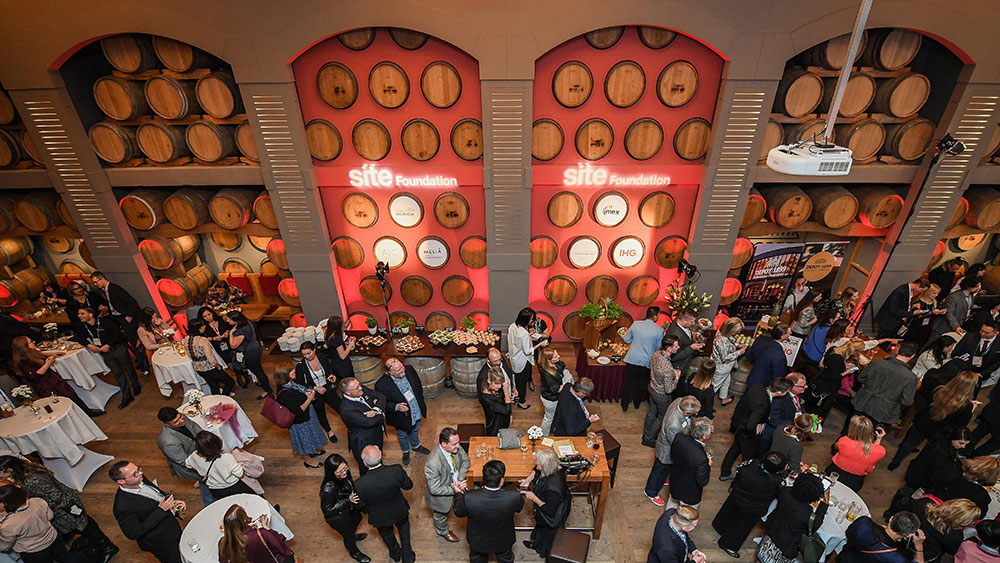
At the recent IMEX Frankfurt, participants were able attend a session about sustainability and to take the Sustainable Exhibiting Pledge. (Courtesy IMEX Group)
The focus on sustainability at meetings and events continues to take centre stage. At this month’s IMEX Frankfurt, for example, sustainability was a session topic, and organiser IMEX Group invited exhibitors to make a Sustainable Exhibiting Pledge in an effort to encourage best practices.

Petrina Goh
“Attendees are tuned in to ethical and environmental food standards including water usage and disposal, humane treatment of animals and workers on farms, and adherence to restrictions on antibiotics, additives, and genetic modification,” said Petrina Goh, commercial director, Singapore, CWT Meetings & Events. “We increasingly see planners and venues taking these factors into account.”
To create more sustainable food choices for conferences, Goh said business event strategies should confirm ethical food sourcing and compliance with environmental policies and offer some form of “giveback” to the local community.
“Instead of plastic, you can use biodegradable cups, plates, straws, and even cutlery,” she said. “Ensure food and beverage is locally sourced, supporting the local community and reducing the transportation footprint, and try to ensure minimum wastage by getting headcounts and choices correct. No one likes throwing away a lot of food when it can be easily avoided.”
Goh shared the example of a client in the risk and reinsurance industry who wanted networking meals to feature sustainably-sourced food.
“Our team worked with the hotel chefs to carefully curate the menus for the lunch and coffee breaks, and to identify offsite dinner venues that could provide a ‘farm-to table’ dining experience, with locally sourced ingredients,” she said.
MCI points to its internal research, which shows that sustainability initiatives have made delegates more aware of the issue, with the majority stating that they would like to see more sustainability efforts at the events they attend.

Sylvia Andre
The agency uses what it terms “FLOSS” guidelines with regards to sustainable food: fresh or fair, local, if possible organic, seasonal, and sustainable, alongside quantity management and an increased ratio of non-meat options. Sylvia Andre, global vice president, marketing and communication, at the agency, says sustainable food can also be about the experience.
“If you travel to a foreign destination, you want to experience something unique that you cannot get in your local restaurant, so by including local specialties and delicacies you are already being more sustainable,” she said.

Kristina McCoobery
While buy-in from delegates appears to be a given, just how viable is it in the Asia Pacific region to offer sustainable food choices? For Kristina McCoobery, co-founder and COO at Invnt, this is dependent on the client, their brand values and budget, and the country.
“With many stakeholders involved in an event, gaining buy-in and then implementing these practices won’t happen overnight — the solution lies in creating a multistep plan where we can gradually introduce new initiatives,” she said.
McCoobery highlights practices undertaken at the 2018 TEDxSydney, relating to both the food and packaging choices.
“Suppliers such as the Edible Bug Shop offered up dishes like cricket hummus, while AquaBotanical showcased how its water products are made using fruit and vegetable waste,” she explained. “The focus was on both educating attendees on how to incorporate sustainable practices into their daily lives as well as offering up sustainable items to consume.”
